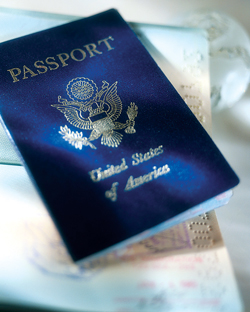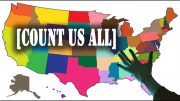 Immigration Equality Hails Proposal as a Significant Step Toward Federal Family Recognition
Immigration Equality Hails Proposal as a Significant Step Toward Federal Family Recognition
Washington, DC – Immigration Equality, a national organization fighting for equality under U.S. immigration law for lesbian, gay, bisexual, transgender, and HIV-positive people, hailed the announcement today from the Department of Homeland Security (DHS) that would recognize lesbian, gay, bisexual and transgender families (LGBT) on the customs form required to enter the country. When adopted, today’s proposal will end discriminatory treatment of LGBT families, who until now have been forced to fill out two separate forms despite the fact that the form says “only ONE written declaration per family is required.”
“Immigration Equality is proud to see this change come to fruition,” said Rachel B. Tiven, the group’s executive director. “We asked the Obama administration to stop discriminating against families on federal customs forms, and today’s announcement is welcome news. Separating families in the customs line was a waste of government resources and a painful symbol of the double standard LGBT families face at the federal level. This proposal ends that insult. It sends an unmistakable message that the Administration, and the United States, recognize gay families as ‘real families,’ too. We thank our coalition partners, especially Family Equality Council, for their part in this victory.”
The proposed change will undergo a series of reviews prior to implementation, including a period of public comment. Immigration Equality vowed today to rally public support for the changes, including support from families directly impacted by the change, such as Mihail S. Lari and his partner, Scott Murray.
In June 2011, Mihail – a naturalized U.S. citizen originally from Pakistan – and Scott entered the U.S. following a European trip. They filled out one customs form, “since it states that only one form is needed for each family,” said Mihail. The customs officer asked why they had only completed one form, and when they replied they were domestic partners registered in the state of California, the officer said, “The federal government doesn’t recognize that.”
“Scott and I met the qualifications on the customs form, including a shared address, yet the federal government refused to recognize us as a family,” said Lari. “After waiting years for citizenship because federal law would not allow Scott to sponsor me, we were then faced with the reality that, even after I naturalized, we were still not family in our government’s eyes. This proposal is one step towards correcting that, and our family is glad to see it moving forward.”
For more information, visit www.immigrationequality.org.








Just another small step on the way to making America what it was supposed to be.
Imagine if sanitorium was president, or even Romney – a Mormon – a religion that kicks their children out of the family if they are gay and have a partner. Strange form of love.
Unless I am reading something incorrectly…
As stated in the Summary: “CBP believes that this proposed change would more accurately reflect relationships between members of the public who are traveling together as a family.” However, the purposed language appears to intentionally, or unintentionally, exclude some family members who should fall under the definition of “domestic relationship”.
In particular, please note following phrase: “wherein the partners share financial assets and obligations”, as found in § 148.34 Family grouping of exemptions for articles acquired abroad, subsection; (c) Domestic relationship.
§ 148.34 (c) Domestic relationship. As used in paragraph (b)(1), the term “domestic relationship” includes foster children, stepchildren, half-siblings, legal wards, other dependents, individuals with an in loco parentis or guardianship relationship, and two adults who are in a committed relationship including, but not limited to, long-time companions, and couples in civil unions, or domestic partnerships, wherein the partners share financial assets and obligations, and are not married to, or a partner of, anyone else…
It can be argued that some partners may not share financial assets or, to the same extent, share obligations. It would seem unfair to hold some individuals to this standard, and not others, such as married individuals. In effect, it appears that individuals in a domestic relationship would be held to a higher (!) standard, as compared to, for example, spouses (there is no reference in the regulation that spouses must share financial assets and obligations).